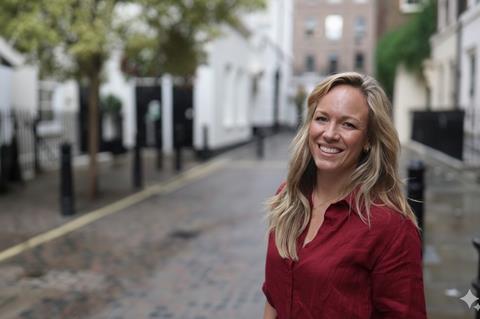
Eline van der Velden, the founder and CEO of London-based AI production company Particle6, and the creator of AI actress Tilly Norwood, has responded to a social media backlash over revelations talent agencies are interested in signing the digital avatar.
“To those who have expressed anger over the creation of my AI character, Tilly Norwood: she is not a replacement for a human being, but a creative work – a piece of art,” said van der Velden in a statement. ”Like many forms of art before her, she sparks conversation, and that in itself shows the power of creativity.”
Over the weekend, van der Velden announced the launch of AI talent studio Xicoia, designed to create, manage and monetise hyperreal digital stars. The first of its characters, Tilly Norwood, has already soft-launched on TikTok, Instagram, and in a sketch on YouTube.
Speaking at the Zurich Film Festival’s Industry Summit, van der Velden said she would be soon announcing a traditional agency would be representing Tilly – and that many film and TV companies were suddenly more interested in embracing AI.
“We were in a lot of boardrooms around February time, and everyone was like, ‘No, this is nothing. It’s not going to happen’. Then, by May, people were like, ‘We need to do something with you guys.’
However, the news sparked a social media backlash from actors such Melissa Barrera, Nicholas Alexander Chavez, Toni Collette and Kiersey Clemons.
Barrera wrote: “Hope all actors repped by the agent that does this, drop their a$$. How gross, read the room.”
UK actor Ralph Ineson put it simply on x, saying: “Fuck off”.

In the mid-long term, Van der Velden’s Xicoia wants to scale to create more than 40 AI personas, and is building them on a proprietary avatar personality engine, DeepFame, developed by Particle6.
It says it is also working with several Hollywood stars who want to appear on screen as their younger or current selves. The company is also collaborating with estates to bring famous performers from the past back to the big screen.
In her statement, van der Welden said she saw AI not as a replacement for people, “but as a new tool — a new paintbrush. Just as animation, puppetry, or CGI opened fresh possibilities without taking away from live acting, AI offers another way to imagine and build stories. I’m an actor myself, and nothing – certainly not an AI character – can take away the craft or joy of human performance.”
She said creating Tilly was “an act of imagination and craftsmanship, not unlike drawing a character, writing a role or shaping a performance. It takes time, skill, and iteration to bring such a character to life. She represents experimentation, not substitution. Much of my work has always been about holding up a mirror to society through satire, and this is no different.”
“I also believe AI characters should be judged as part of their own genre, on their own merits, rather than compared directly with human actors. Each form of art has its place, and each can be valued for what it uniquely brings.
“I hope we can welcome AI as part of the wider artistic family: one more way to express ourselves, alongside theatre, film, painting, music, and countless others. When we celebrate all forms of creativity, we open doors to new voices, new stories, and new ways of connecting with each other.”

























No comments yet